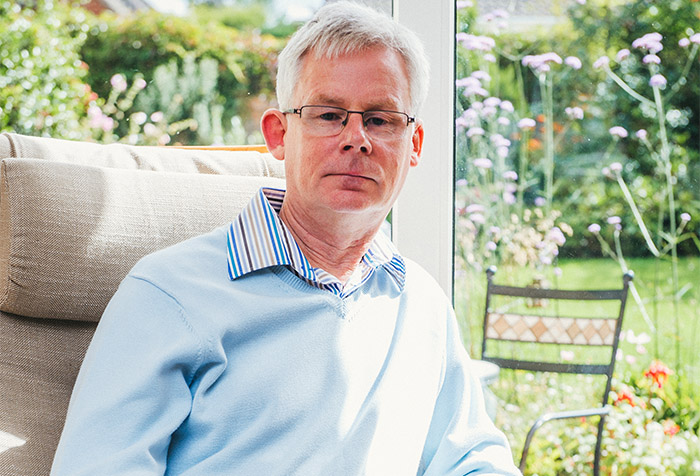 Bryan Gould lives with oculopharyngeal muscular dystrophy
Bryan Gould lives with oculopharyngeal muscular dystrophy
HEALTH bosses are being urged not to overlook people living with muscle-wasting conditions in any future plans, after a new study reveals there are 40,000 more people living with such conditions than previously thought.
Research by the Muscular Dystrophy UK charity found 110,000 people living with one of these conditions, compared with the previous estimate of 70,000 in 2010.
The findings come at a crucial time as decisions are being made about the future of health service commissioning and delivery across the UK, with the introduction of Integrated Care Systems across England and the UK-wide development of action plans for the implementation of the Government’s Rare Diseases Framework.
Bryan Gould, 62, lives with the muscle-wasting condition oculopharyngeal muscular dystrophy. He said: “It’s so important that the information from this new study is shared with treatment commissioners, and that they use it to inform healthcare services going forwards.
Catherine Woodhead, CEO of Muscular Dystrophy UK, said: “No wonder neuromuscular specialist services are so stretched. They already work tirelessly to meet the complex needs of people with muscle-wasting conditions, and this research shows clearly that they need further resources. This growing population needs support, and they cannot be left behind.”
“So many people living with muscle-wasting conditions face years of uncertainty and misdiagnosis and it is vital that treatment commissioners take neuromuscular conditions as seriously as other, more well-known diseases.”
The study, led by Dr Iain Carey at St George’s University of London, used millions of healthcare records collected from GPs UK-wide, between 2000 and 2019.
Dr Carey said: “A rise in prevalence among older age groups suggests that some of these conditions are now much more common within an ageing population. It is therefore important that multidisciplinary health and social teams are made aware of this new estimate as soon as possible.”

